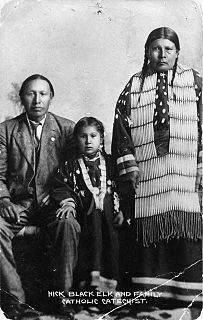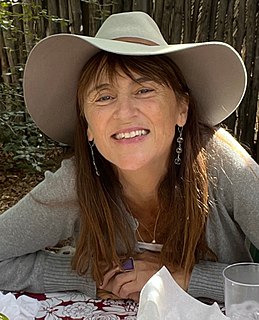A Quote by Sigmund Freud
Our unconscious, then, does not believe in its own death; it behaves as if it were immortal. It knows nothing that is negative; in it contradictories coincide. This may be the secret of heroism.
Related Quotes
It is good to have a reminder of death before us, for it helps us to understand the impermanence of life on this earth, and this understanding may aid us in preparing for our own death. He who is well prepared is he who knows that he is nothing compared with Wakan-Tanka, who is everything; then he knows that world which is real.
Our negative thoughts are valuable messages to us about our deeper fears and negative attitudes. These usually are so basic to our thinking and feeling that we don't realize they are beliefs at all. We assume that they are simply "the way life is." We may be consciously affirming and visualizing prosperity, but if our unconscious belief is that we don't deserve it, then we won't create it. Once we become aware of our core negative beliefs, they begin to heal.
Heroes are necessary in order to enable the citizens to find their own ideals, courage and wisdom in the society. The hero carries our hopes, our aspirations, our ideals, our beliefs. In the deepest sense the hero is created by us; he or she is born collectively as our own myth. This is what makes heroism so important: it reflects our own sense of identity and from this our own heroism is molded.
We lost not only through death, but also by leaving and being left, by changing and letting go and moving on. And our losses include not only our separations and departures from those we love, but our conscious and unconscious losses of romantic dreams, impossible expectations, illusions of freedom and power, illusions of safety -- and the loss of our own younger self, the self that thought it would always be unwrinkled and invulnerable and immortal.
True prayer is done in secret, but this does not rule out the fellowship of prayer altogether, however clearly we may be aware of its dangers. In the last resort it is immaterial whether we pray in the open street or in the secrecy of our chambers, whether briefly or lenghtily, in the Litany of the Church, or with the sigh of one who knows not what he should pray for. True prayer does not depend either on the individual or the whole body of the faithful, but solely upon the knowledge that our Heavenly Father knows our needs.
Evolution does not attempt to explain the origin of life. It is simply a history of the process of life. With the secret cause of life evolution has nothing to do. A man, therefore, may be a materialistic evolutionist or a theistic evolutionist; that is, he may believe that the cause is some single unintelligent impersonal force, or he may believe that the cause is a wise and beneficent God.
Will you lose everything you've got if you open your own restaurant? Who knows. Will unleashing your secret desire to teach tap dancing ruin your reputation as a professional wrestler? Who knows. And who cares? Unless your unknown puts you at risk of death, prison, or bodily harm, you have nothing to lose except living a dull, uninspired life.
It has become a common feeling, I believe, as we have watched our heroes falling over the years, that our own small stone of activism, which might not seem to measure up to the rugged boulders of heroism we have so admired, is a paltry offering toward the building of an edifice of hope. Many who believe this choose to withhold their offerings out of shame. This is the tragedy of the world. For we can do nothing substantial toward changing our course on the planet, a destructive one, without rousing ourselves, individual by individual, and bringing our small, imperfect stones to the pile.
In those sticky summer nights in South London our windows stay open and our tiny apartment becomes our secret garden. The magic of the secret garden is that it exists in our imagination. There are no limits, no borderlines. The secret garden leads to the marigolds of Mogadishu and the magnolias of Kingston and when the heat turns us sticky and sweet and unwilling to be claimed by defeat we own the night. We own our bodies. We own our lives.




































